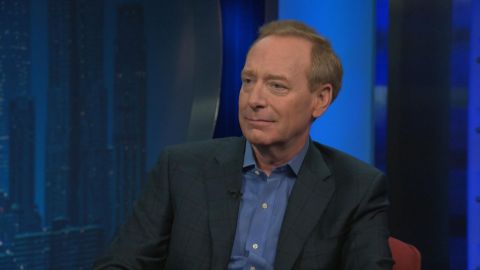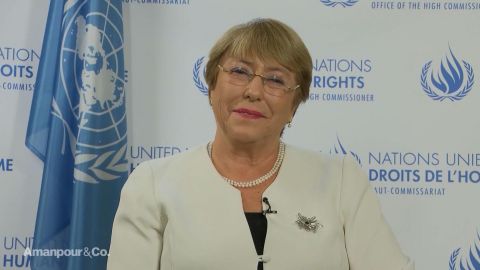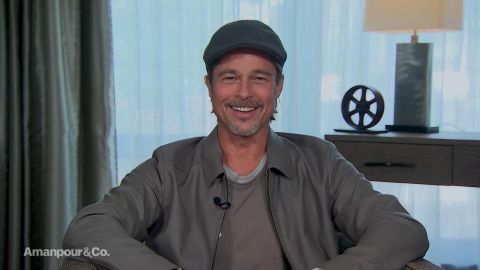Read Transcript EXPAND
CHRISTIANE AMANPOUR: Tell me what action and who would you call out if you will be at these meetings?
MICHELLE BACHELET, U.N. HIGH COMMISSIONER FOR HUMAN RIGHTS: Well, I would say — one of the things that I already — and I think I said it also in my open statement in the Human Rights Council, is a small island are really leading because they are already leaving the consequences. So it’s not — and many of them already have national action plans in terms of mitigation, in terms of adaptation, and, of course, in terms of prevention. So what I think it needs to be done on one hand is to do a lot of education, civic education with the children, with the people because we need a cultural change, a behavioral change. I mean, people needs to change the way they leave, the way they consume, the way we produce, because otherwise this won’t work. We need also the governments to be — to have the courage, because it needs to make difficult decisions. For example, sometimes you want the economy to go well, of course, I did, as well, because you need to provide people with other things and a country has to develop. But on the other hand, sometimes you have to make difficult decisions in terms of environment. The third thing is we need business onboard, as well, because green economy and blue economy can’t provide a lot of opportunities. It’s not that the economy is going to end, it’s just that we need to learn that we cannot continue doing business as usual. And we do have very important companies who are doing a lot on this regard. So we need everyone onboard.
AMANPOUR: I want to stick with Brazil, actually, and on the issue of human rights, not just the environment but other human rights, because you have called out Brazil for all sorts of violations recently and the president, Jair Bolsonaro, who is a bit of a populist and who has a certain way of speaking in public, he then turned around and sort of attacked you for what happened to your father, who was tortured under the regime of Augusto Pinochet in Chile. Let me play the sound bite from the Brazilian president.
(BEGIN VIDEO CLIP)
JAIR BOLSONARO, BRAZILIAN PRESIDENT (through translation): He is defending the human rights of a vagabonds (ph). She says more still. She criticized that Brazil is losing its democratic arena. Mrs. Michelle Bachelet, if the people led by Pinochet have not defeated the left of 1973, including your father, today, Chile would be like Cuba.
(END VIDEO CLIP)
AMANPOUR: Michelle Bachelet, that’s an extraordinary attack. I mean, that’s from one president against you, a former president of a neighboring country, Chile. How do you take that when he said that?
BACHELET: Well, I mean, I don’t take it personal because what I totally feel that it’s wrong is that any leader could excuse torture and violation of human rights. They’re so many. You listen to them every time saying that, you know, they’re fighting extremism so that’s why they cannot follow the international standards of human right, the humanitarian laws.
About This Episode EXPAND
UN High Commissioner for Human Rights Michelle Bachelet discusses the climate crisis and the upcoming UN General Assembly with Christiane Amanpour. Brad Pitt joins the program to explain the roles that masculinity and vulnerability play in new space epic “Ad Astra.” Microsoft President Brad Smith sits down with Hari Sreenivasan to grapple with the ethical questions that come with new tech.
LEARN MORE


